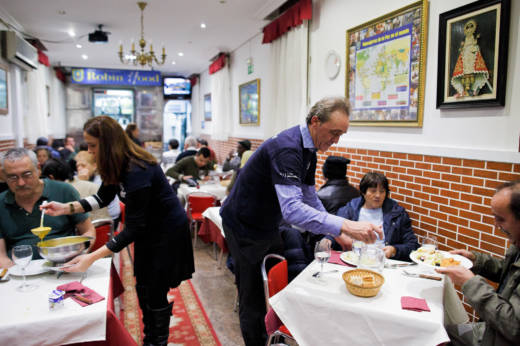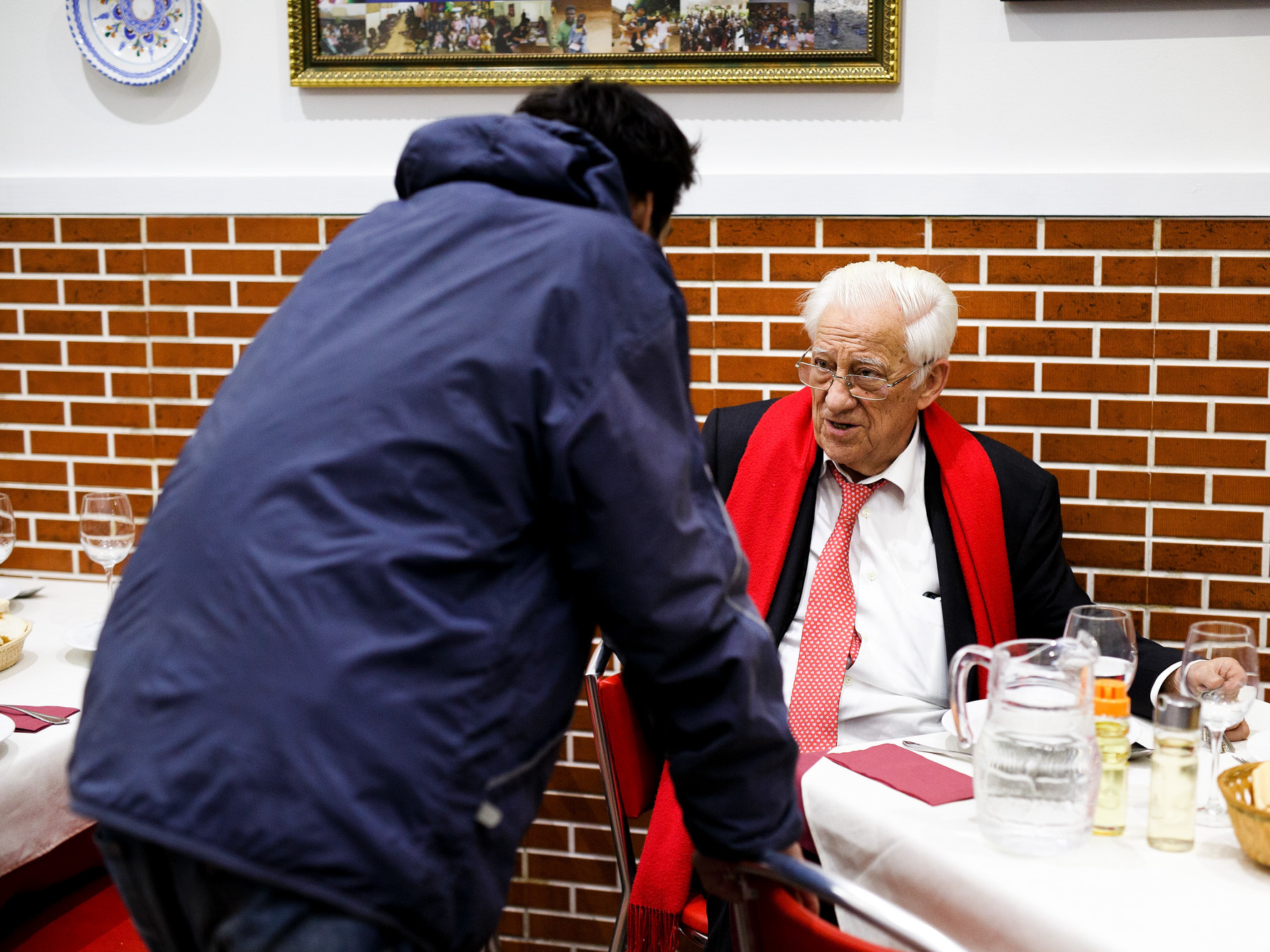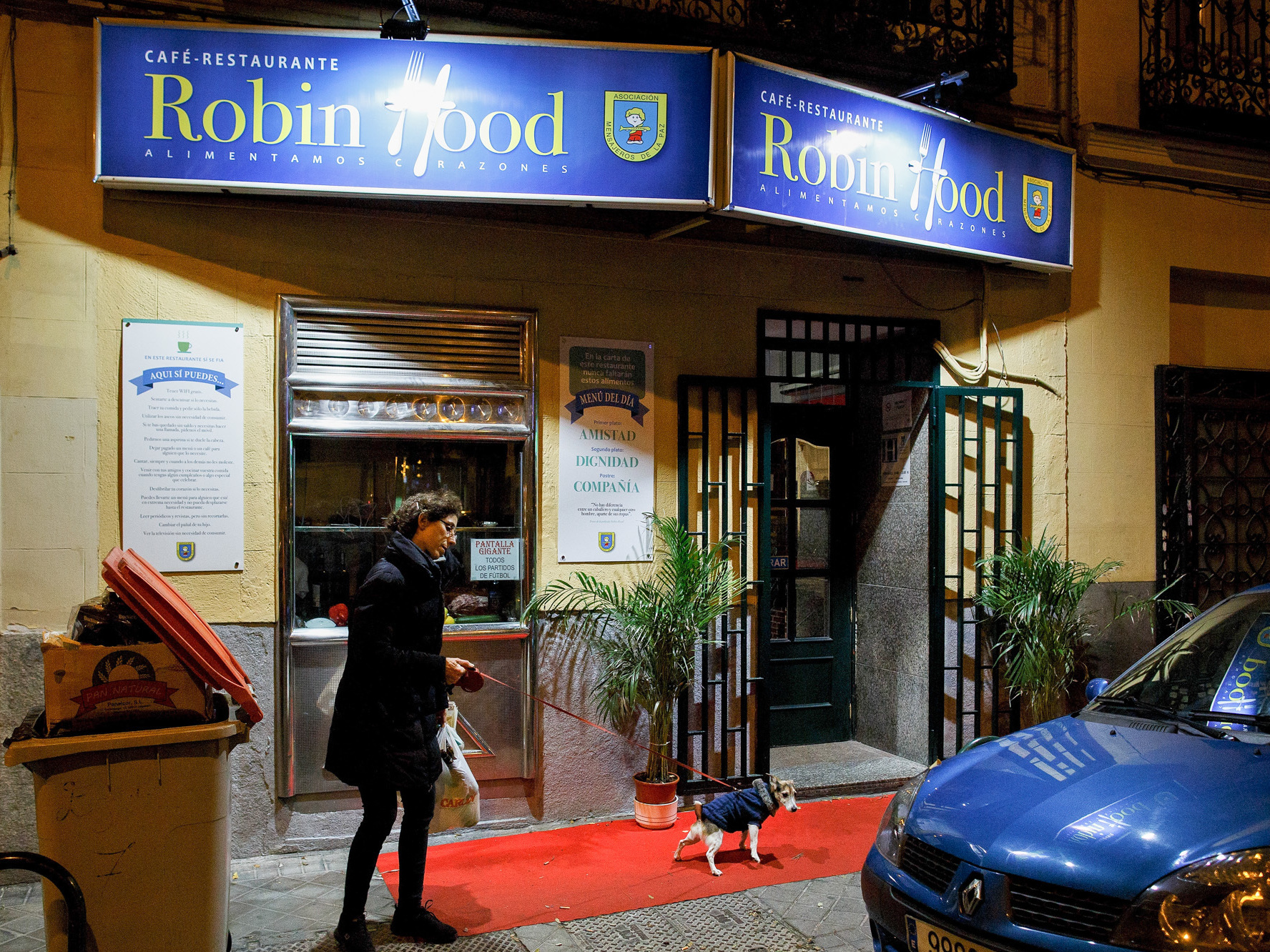Listen to the story on All Things Considered:
Spain's 'Robin Hood Restaurant' Charges The Rich And Feeds The Poor

Spain's 'Robin Hood Restaurant' Charges The Rich And Feeds The Poor
On a frigid winter night, a man wearing two coats shuffles into a brightly lit brick restaurant in downtown Madrid. Staff greet him warmly; he's been here many times. The maître d' stamps his ID card, and the hungry man selects a table with a red tablecloth, under a big brass chandelier.
The man, Luis Gallardo, is homeless — and so are all the diners, every night, at the city's Robin Hood restaurant. Its mission is to charge the rich and feed the poor. Paying customers at breakfast and lunch foot the bill for the restaurant to serve dinner to homeless people, free of charge.
It's become Spain's most sought-after lunch reservation. The restaurant has poached staff from luxury hotels. Celebrity chefs are lining up to cook once a week. For paying clients, the lunch is fully booked through the end of March.

The restaurant opened in early December, and is run by an 80-year-old Catholic priest, Ángel García Rodriguez, whom everyone knows simply as "Padre Ángel."
"I want them to eat with the same dignity as any other customer," Father Ángel says. "And the same quality, with glasses made of crystal, not plastic, and in an atmosphere of friendship and conversation."
Outside, there's a sign listing the house rules: Patrons are allowed to sing as they please, as long as it doesn't disturb other customers. They can use the free wifi and borrow a cell phone if they need to make a call. They're free to bring their own food and order only drinks, if they prefer. Or they can take over the kitchen for a birthday party or other special celebration.
As founder of Messengers of Peace, a local charity, Padre Ángel has also converted an abandoned church nearby into a sort of community center. It's the only church in Madrid that's open 24 hours a day — with free coffee, television and places for patrons to sleep. He or a colleague celebrates Mass there daily.
On the night NPR visited, the Robin Hood waiters served mushroom consommé, followed by roast turkey and potatoes. For dessert, there's a choice of vanilla pudding or yogurt.
Gallardo, the man in two coats, says the meal reminds him of Christmases past, before the accounting firm he ran went bankrupt and he had to lay off 60 employees. He shows NPR some photos on his cell phone of a dining table holding a huge spread of sweets and a bottle of French wine. He says the photos were taken two years ago at his home, which he has since had to sell to pay debts.
"We were just like any other family," says Gallardo, 48, shaking his head. His wife has now left him.
He lives on the street now, sleeping in ATM machine alcoves.
As for his future, he says: "My future is now. I can't even talk about tomorrow. I'd like to know, but I don't what it holds."

Spain's economy may be out of recession, but its effects are lingering. Unemployment still hovers near 20 percent. The Robin Hood Restaurant feeds more than 100 needy people each night, in two shifts.
Back in the kitchen, the restaurant's dishwasher has just broken down. A volunteer plunges her hands into the sink and starts washing plates by hand.
"Some of our diners are very educated, and some are a bit ashamed to be here," says Nieve Cuenca, a retiree who comes to help out in the kitchen once a week.
"I love this work. It's the best thing I've ever done in my life," she says, elbow-deep in soapy water.
Copyright 2017 NPR.
